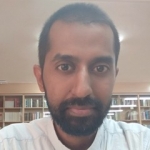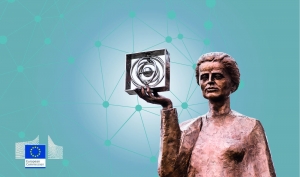ESR2
Project title: Push or Pull Information to or From the Market
Researcher: Girish Nagraj
Girish Somwarpet Nagraj holds a bachelors in Telecommunications Engineer from Visvesvaraya Technological University- Belguam (India), Bachelor of Law (Intellectual Property law Honors) from IIT- Kharagpur (India) and Masters in Business law from Freie University Berlin. Girish has worked as a senior software engineer at Infosys Technologies Ltd. and Hewlett Packard Bangalore (India). Post his masters Girish had been working as a researcher at O.P. Jindal Global University- India.
His primary research areas include Standard essential patents, Telecom regulatory issues and interface between competition law and intellectual property rights.
Email: girish.somawarpet@ua.es

Host Institution: University of Alicante; Degree Partner: Université de Strasbourg
Objectives:
Many inventions for which patents granted nowadays in Europe and all over the world do not arrive to the market. Such creations and inventions that patents are supposed to foster will never enter into the innovation stage, and society will not obtain a direct profit from them. Among those that make it to the market, just a few actually succeed. This itinerary proposes two research lines. First, the aim is to analyse, both from a legal and an economic perspective the practical consequences of the more than two hundred years old paradigm based on the principle “innovations follows research”, according to which the role of the patent system is to encourage research/creativity/inventions regardless of their impact on society or their economic viability. A second aim is to identify those fields and cases where the present system could generate inefficiencies, therefore questioning the paradigm “one size fits all”. As a result, proposals to modify or adjust the system are expected, especially addressing patents granted as a consequence of publicly funded research. These proposals should approach Intellectual Property from a more holistic perspective, integrating different tools, including a more coherent treatment of confidential knowledge in the digital age. The researcher may also study the possibility of attributing specific consequences to publicly funded research in order to enhance the efficiencies of the system for the benefit of local territories and SMEs.
Expected Results:
Most of the patents granted in Europe do not arrive to the innovation stage, and never come to the market; therefore the society does not obtain a direct profit from them. The situation is even more dramatic in relation to patents coming from public research. The suggested research will propose to change the paradigm and attribute specific public funds for much more orientated research in order to enhance the efficiencies for the benefit of local territories and SMEs.
Planned secondment(s): EUIPO
Supervisors:
Co-supervisor:




